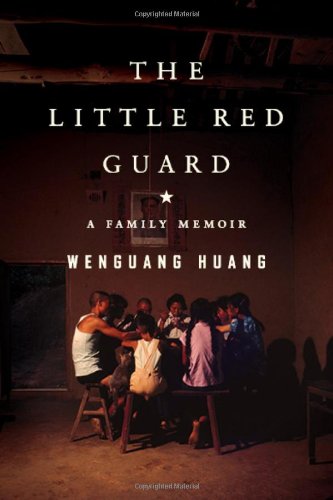All Nonfiction
- Bullying
- Books
- Academic
- Author Interviews
- Celebrity interviews
- College Articles
- College Essays
- Educator of the Year
- Heroes
- Interviews
- Memoir
- Personal Experience
- Sports
- Travel & Culture
All Opinions
- Bullying
- Current Events / Politics
- Discrimination
- Drugs / Alcohol / Smoking
- Entertainment / Celebrities
- Environment
- Love / Relationships
- Movies / Music / TV
- Pop Culture / Trends
- School / College
- Social Issues / Civics
- Spirituality / Religion
- Sports / Hobbies
All Hot Topics
- Bullying
- Community Service
- Environment
- Health
- Letters to the Editor
- Pride & Prejudice
- What Matters
- Back
Summer Guide
- Program Links
- Program Reviews
- Back
College Guide
- College Links
- College Reviews
- College Essays
- College Articles
- Back
The Little Red Guard by Wenguang Huang
Writer Wenguang Huang brings us forty years back into the past with his memoir The Little Red Guard, which tells the fascinating true story of life under Mao Zhe Dong’s communist regime. Huang’s memoir is about growing up amid the tumultuous struggle between China’s past and present. Not only does this book revive the past, it will also heighten the reader’s understanding and interest in China’s complex history and politics.
By the time he was ten years old, Huang, the eldest boy of the family, was given the responsibility of guarding his grandmother’s coffin. At night, he even had to sleep next to it. Since the 1949 Communist takeover, the government had banned the practice of traditional burial. However, Huang’s grandmother insisted on being properly buried after her death; the family grudgingly took on the endeavor of finding a way to secretly hold a traditional funeral and burial in order to appease Grandma, who was becoming increasingly obsessed with her own death. Preparation for Grandmother’s funeral would take fifteen years before her death to complete. Those fifteen years were rife with turmoil within the family, who was under the constant fear of being caught by the authorities. Punishments for adhering to traditional values, especially for wedding and funeral ceremonies (considered “the decadent and cruel past of the pre-Communist era”) were harsh.
Throughout his childhood, Huang had to face the contradictions of the values he was taught at school and at home. At school, he learned that one should be loyal only to the Revolution and the Communist Party. Children were encouraged to denounce their own parents and family members who disagreed with the ideas set by the communist regime. At home, Huang’s grandmother taught him that one’s elders should be prioritized. Only filial children could have a happy afterlife. Huang finds himself confused by the traditional teachings and values of his grandmother (considered “superstitions”) and what he learns at school about the Revolution. His parents are no help in this dilemma; his father only tells him to keep his thoughts to himself to avoid trouble. Only when he travels to England as a college student does he find the opportunity to think for himself.
One reason why I enjoyed this book so much is because there were so many little details and elements that reminded me of the stories my parents told me about their own childhood. The conflict Huang has with his parents (he is politically outspoken and they are not) reminded me of the relationship my dad has with his parents. The place Huang went to university in China (Fudan) is the same university my dad attended.
After reading The Little Red Guard, readers will come to understand the true extent of freedom as a universal need, rather than a privilege that one must be born with. Whether it is enslavement, political oppression, or social inequality in the way, the strength and spirit of human nature will always lead its own way to liberty.
Similar Articles
JOIN THE DISCUSSION
This article has 0 comments.

